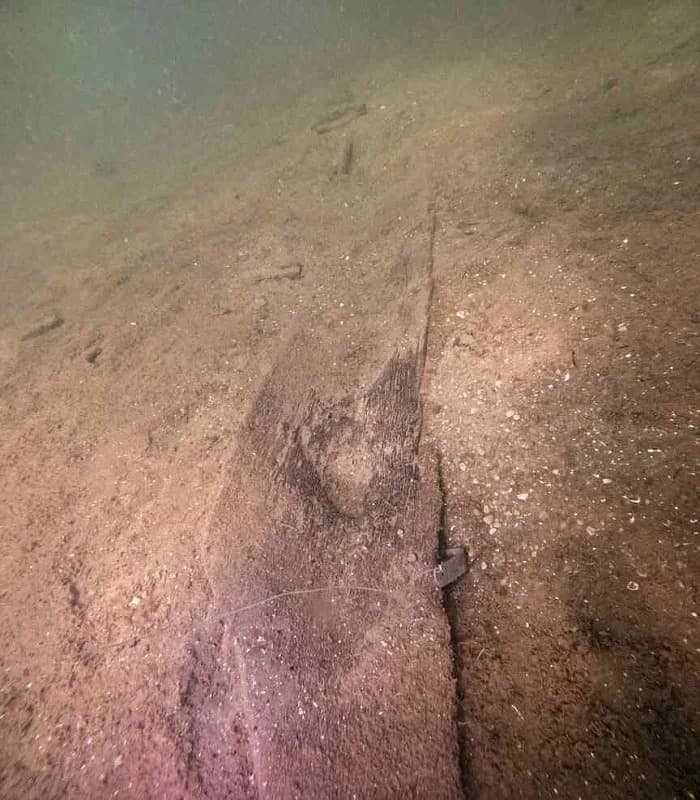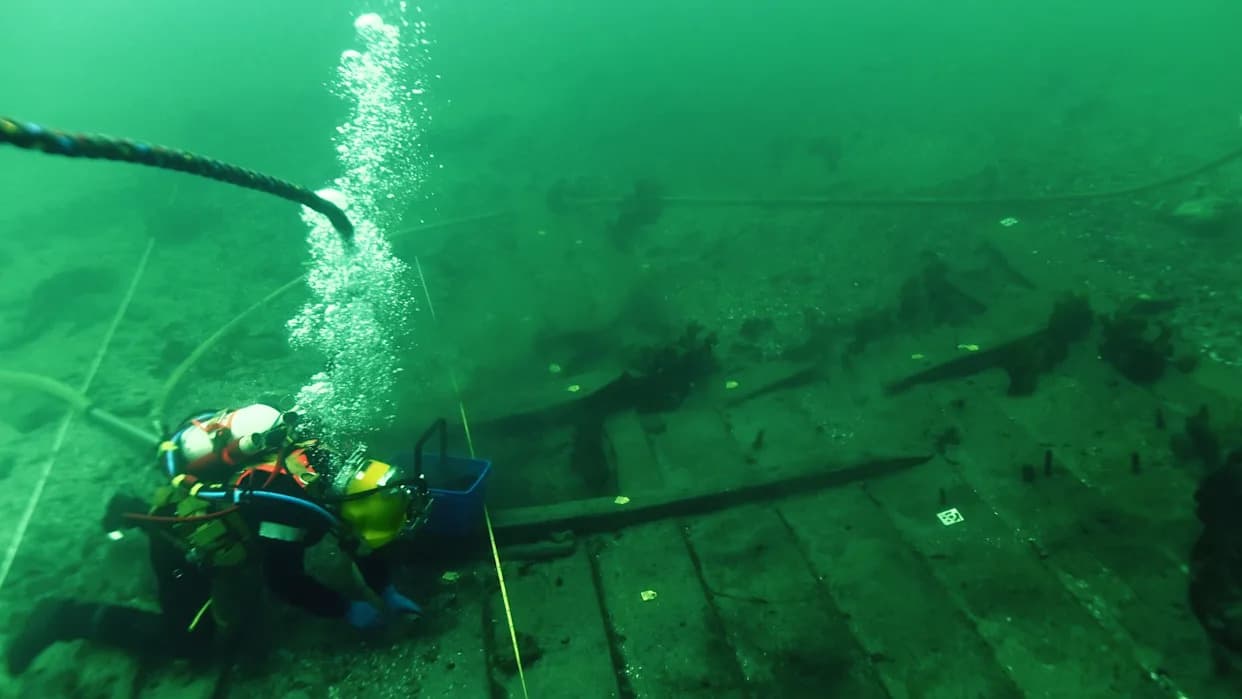Researchers have mapped 16 ancient dugout canoes in Lake Mendota, near Madison, Wisconsin, revealing a communal waterway access point used for millennia. Radiocarbon dating places the oldest canoe at about 5,200 years old, making it one of the oldest in eastern North America. The site, likely active during a long drought when lake levels were lower, appears to have functioned as a shared storage or "docking" area, and continued study may uncover even older vessels. The work is a collaborative effort with UW–Madison scholars and tribal preservation officers from the Ho-Chunk Nation and the Bad River Band.
16 Ancient Canoes Found in Lake Mendota Reveal Millennia-Old Shared 'Docking Station'

Archaeologists have mapped the remains of 16 ancient dugout canoes along the shore of Lake Mendota in Madison, Wisconsin, uncovering evidence of a communal, long-standing waterway network that researchers liken to a prehistoric docking station for shared vessels.
Discovery and dating
State maritime archaeologist Tamara Thomsen discovered the first canoe — a roughly 1,200-year-old dugout — in 2021 at about 24 feet below the lake surface. Subsequent work revealed additional vessels including canoes dated to about 3,000, 4,500 and 2,000 years old. Working over several years, researchers with the Wisconsin Historical Society have now identified 16 canoes in total.
What the canoes reveal
Radiocarbon dating indicates the oldest of the 16 dates to roughly 5,200 years ago, making it one of the oldest recorded canoes in eastern North America. Archaeologists believe the site functioned as a shared access point where community members stored and retrieved canoes as they traveled. During a prolonged regional drought that began about 7,500 years ago, the discovery area of the lake was likely much shallower — perhaps only 4 feet deep — making it a convenient landing and transfer point for foot and water travel.
"It's a parking spot that's been used for millennia, over and over," said Tamara Thomsen.
Community and collaboration
Thomsen worked with UW–Madison anthropologist Sissel Schroeder and preservation officers from the Ho-Chunk Nation and the Bad River Band of Lake Superior Chippewa. Larry Plucinski of the Bad River Band emphasized that the canoes "give us insight into a sophisticated travel network and interconnected communities" and celebrate ancestral ingenuity.
"The canoes remind us how long our people have lived in this region and how deeply connected we remain to these waters and lands," said Bill Quackenbush, tribal preservation officer for the Ho-Chunk Nation.
Preservation practices and future prospects
Evidence suggests these dugouts were communal resources: people likely buried them in sediment in waist- to chest-deep water to prevent drying or freeze damage and to store them between uses. Because archaeologists are finding canoes beneath other canoes, Thomsen speculates that deeper excavations could uncover even older craft — perhaps as old as 7,000 years — which would indicate use by very early inhabitants of the region.
Thomsen, who normally focuses on Great Lakes shipwrecks and dedicates part of her time to the canoe project, described the work as deeply meaningful. The project not only expands scientific understanding of travel and settlement in the region but also strengthens collaboration with Indigenous communities and helps share their histories.
Help us improve.




























